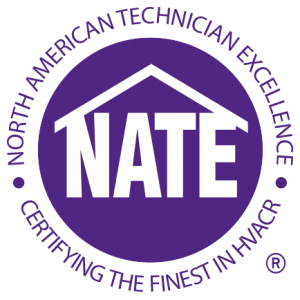Energy Efficient Heating Solutions: Best Practices for Reducing Heating Costs

As homeowners become more conscious of energy usage and environmental impact, energy-efficient heating solutions are becoming increasingly popular. Efficient heating not only lowers energy bills but also reduces your home’s carbon footprint. Whether you’re looking to upgrade your existing heating system or adopt practices that improve efficiency, making the switch to greener, more efficient HVAC options can have a significant impact. At L & L Heating and Air Conditioning, we specialize in providing solutions that maximize heating efficiency while keeping your home comfortable throughout Denver’s cold winters. Below are some of the best practices and technologies for energy-efficient heating.
Upgrade to a High-Efficiency Heating System
One of the most impactful ways to improve your home’s heating efficiency is to upgrade to a high-efficiency furnace, heat pump, or boiler. Modern heating systems are designed to use energy more efficiently than older models, often resulting in significant savings on utility bills.
High-efficiency heating systems, such as condensing furnaces and geothermal heat pumps, use advanced technology to reduce energy waste. Condensing furnaces capture and reuse heat that would otherwise be lost, while geothermal heat pumps use the stable temperature of the earth to heat your home. Another excellent option is ductless mini-split systems, which are ideal for homes without ductwork or for heating specific zones, offering flexibility and energy savings by avoiding the losses associated with ducted systems.
Upgrading to one of these systems ensures that your home heating is as efficient as possible, minimizing waste and maximizing comfort.
Use Programmable or Smart Thermostats
One of the easiest ways to improve energy efficiency without sacrificing comfort is by installing a programmable or smart thermostat. These devices allow you to customize your heating schedule to match your daily routine, ensuring your system only runs when necessary.
A programmable thermostat can be set to automatically lower the temperature while you’re away or sleeping, then raise it just before you return home or wake up. Smart thermostats take this a step further, offering advanced features like remote access via smartphone apps and learning capabilities to optimize heating based on your habits. By maintaining a consistent schedule, you can avoid wasting energy while keeping your home comfortable.
According to the U.S. Department of Energy, adjusting your thermostat by 7-10°F for 8 hours a day can reduce your annual heating bills by up to 10%. These small adjustments have a big impact on energy efficiency and cost savings.
Improve Home Insulation and Seal Air Leaks
No matter how efficient your heating system is, if your home isn’t properly insulated or has air leaks, much of the heat will be lost. Insulating your home and sealing gaps where heat can escape are essential steps in maximizing your heating efficiency.
- Add attic insulation: Heat rises, and without proper attic insulation, it can easily escape through the roof. Insulating your attic can significantly reduce heat loss and lower your heating bills.
- Seal windows and doors: Check for drafts around windows and doors and seal any gaps with weatherstripping or caulk. Even small leaks can let cold air in and warm air out, forcing your heating system to work harder.
In addition, ductwork should be inspected for leaks, as up to 30% of heated air can be lost through cracks in ducts. By sealing these gaps and ensuring ducts are well-insulated, you can greatly improve the efficiency of your heating system and keep your home warm with less energy.
Incorporate Zoning Systems
Zoning systems allow you to divide your home into different areas, each with its own thermostat, giving you greater control over where and when your home is heated. This approach is highly efficient, as it allows you to heat only the areas that are occupied, while keeping temperatures lower in unoccupied rooms.
With zoning systems, you can:
- Heat only the rooms you use: Avoid wasting energy on areas that don’t need to be heated, like guest rooms or storage spaces.
- Customize comfort: Each zone can be set to a different temperature, making it ideal for households with varying temperature preferences.
Zoning systems are particularly useful in multi-story homes where temperature differences between floors can cause uneven heating. When combined with a programmable thermostat, zoning can lead to significant energy savings and a more comfortable home environment.
Regular Maintenance of Heating Systems
Proper maintenance is key to keeping your heating system running efficiently throughout the winter. A neglected system can lose efficiency over time, increasing energy consumption and the likelihood of costly repairs.
Routine maintenance tasks include:
- Changing air filters regularly to ensure proper airflow and prevent the system from working harder than necessary.
- Cleaning and inspecting ductwork for blockages or leaks to improve airflow and efficiency.
- Annual professional inspections to check for any issues and ensure that all components are functioning correctly. A licensed technician can clean burners, check safety features, and ensure your heating system is running at peak performance.
By keeping your heating system well-maintained, you can extend its lifespan, reduce energy consumption, and ensure it operates smoothly throughout the winter months.
Consider Renewable Energy Sources
For the most energy-efficient and environmentally friendly heating solution, consider integrating renewable energy sources into your home. Solar-powered systems and geothermal heating are two options that can significantly reduce your reliance on traditional fuel sources while lowering heating costs.
- Solar heating systems: By using solar panels to generate energy for your heating system, you can reduce or eliminate your dependence on electricity or gas. Solar systems may require an initial investment, but the long-term savings and environmental benefits make them a smart choice for eco-conscious homeowners.
- Geothermal heat pumps: These systems use the earth’s stable temperature to heat your home, offering a highly efficient and sustainable heating solution. While installation can be costly, geothermal systems are known for their low operating costs and long-term savings.
By following these energy-efficient heating practices, you can reduce heating costs while maintaining a comfortable home throughout the winter. At L & L Heating and Air Conditioning, we specialize in helping homeowners upgrade to high-efficiency heating systems, improve insulation, and integrate advanced HVAC technologies. Contact us today to learn more about energy-efficient heating solutions that can enhance both your comfort and sustainability.





Serving Front Range Denver from Arvada to Monument
Arvada
Aurora
Boulder
Brighton
Broomfield
Castle Pines
Castle Rock
Centennial
Cherry Hills Village
Commerce City
Denver
Edgewater
Elizabeth
Englewood
Evergreen
Foxfield
Franktown
Glendale
Golden
Greenwood Village
Highlands Ranch
Ken Caryl
Lafayette
Lakewood
Larkspur
Littleton
Lone Tree
Longmont
Louisville
Morrison
Northglenn
Parker
Roxborough Park
Sedalia
Sheridan
Thornton
Westminster
Wheat Ridge




